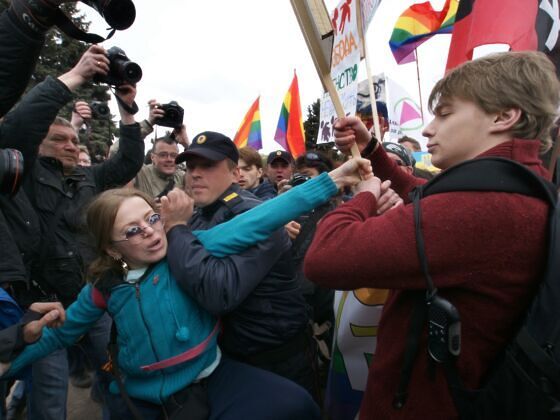Being gay in Russia is now a criminal act, and journalist Jeff Sharlet spent several weeks profiling a group of Russians who have increasingly gone underground or even into exile. His research culminated in a GQ article: Inside the Iron Closet: What It’s Like to Be Gay in Putin’s Russia.
Sharlet describes how Putin’s government, along with the Russian Orthodox Church and what he calls a fringe element — mostly tough-guy homophobes — work together in an “unholy trinity” to crack down on the country’s queer population. Violence against gays and widespread discrimination have been codified by a law that bans gay “propaganda” — a law that was passed by Putin’s government in June of 2013.
